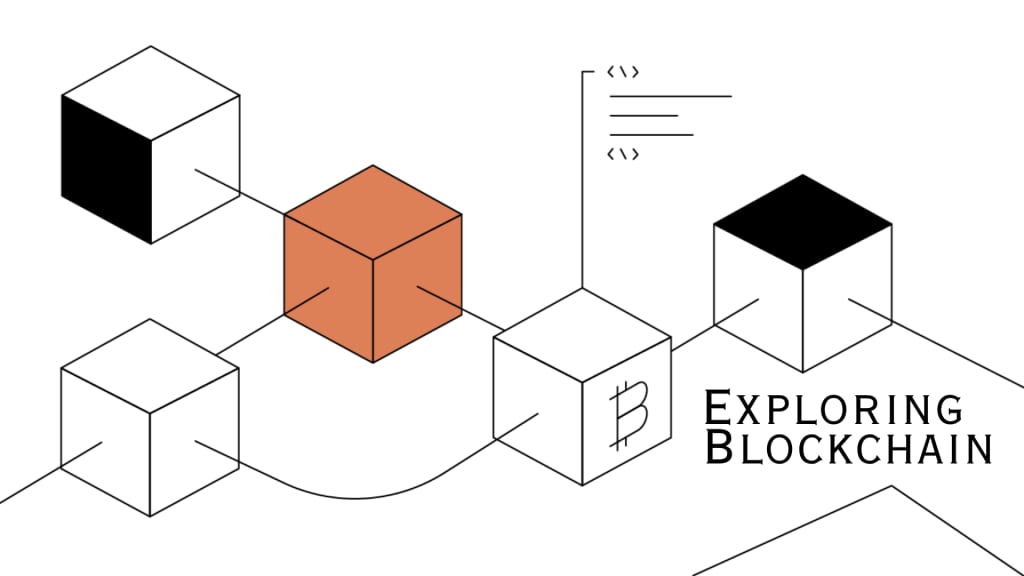Exploring the Revolutionary Potential of Blockchain Development: A Comprehensive Overview
Blockchain is a revolutionary technology that will change the whole tech world in a few years.

Introduction:
Blockchain technology has emerged as one of the most groundbreaking and transformative innovations in recent years. Its decentralized nature, immutability, and cryptographic security have disrupted traditional industries and opened up new avenues for development across various sectors. Blockchain development is rapidly gaining traction, with businesses and individuals recognizing its potential to revolutionize processes, enhance transparency, and foster trust in the digital world. In this article, we will delve into the world of blockchain development, exploring its fundamental principles, key features, and diverse applications. Join us on this journey as we uncover the immense possibilities that lie within the realm of blockchain development.
Understanding Blockchain Technology
To comprehend the potential of blockchain development, it is crucial to grasp the core concepts underlying this revolutionary technology. We will provide a comprehensive overview of the blockchain's decentralized architecture, cryptographic mechanisms, and consensus algorithms. By understanding these foundational elements, readers will gain insights into how blockchain offers unparalleled security and transparency.
The Evolution of Blockchain Development
Blockchain technology has come a long way since its inception with Bitcoin. In this section, we will trace the evolution of blockchain development, exploring how it has expanded beyond cryptocurrency applications. We will discuss the emergence of smart contracts, the rise of alternative blockchain platforms, and the evolution of permissioned and private blockchains. Understanding the evolution of blockchain development will shed light on its growing versatility and potential for widespread adoption.
Key Features and Advantages of Blockchain Development
Blockchain development offers several unique features and advantages that distinguish it from traditional centralized systems. This section will delve into the immutability of blockchain records, the elimination of intermediaries, enhanced security, and increased efficiency. We will examine real-world examples that demonstrate how blockchain development can streamline processes and reduce costs across industries such as supply chain management, finance, healthcare, and more.
Challenges and Limitations in Blockchain Development
While blockchain technology holds immense promise, it also faces challenges and limitations that need to be addressed. In this section, we will explore the scalability concerns, energy consumption issues, and regulatory hurdles associated with blockchain development. By acknowledging these obstacles, we can better understand the roadblocks and work towards overcoming them for wider adoption and integration.
a) Scalability Concerns: One of the challenges in blockchain development is scalability. As more transactions are added to the blockchain, the network can become slower, making it difficult to process a large number of transactions quickly. Scaling solutions, such as sharding and layer-two protocols, are being explored to address this issue and enable blockchain networks to handle increased transaction volumes efficiently.
b) Energy Consumption: Another concern associated with blockchain development is the energy consumption required for mining and validating transactions. Proof-of-Work (PoW) consensus algorithms, used by some blockchains like Bitcoin, require substantial computational power and energy. However, efforts are being made to develop alternative consensus mechanisms like Proof-of-Stake (PoS) that consume significantly less energy, reducing the environmental impact of blockchain networks.
c) Regulatory Hurdles: Blockchain technology operates in a regulatory gray area in many jurisdictions. The lack of clear regulations and legal frameworks can hinder the widespread adoption and integration of blockchain solutions. Governments and regulatory bodies are working towards creating guidelines and regulations to address concerns related to privacy, data protection, and financial compliance, while also fostering innovation in the blockchain space.
d) Interoperability: Interoperability refers to the ability of different blockchain networks to communicate and interact with each other seamlessly. Achieving interoperability is essential for blockchain development as it allows for the exchange of assets and data across multiple networks. Efforts are underway to develop protocols and standards that enable interoperability, facilitating collaboration and integration between various blockchain platforms.
Future Trends and Emerging Applications
As blockchain development continues to evolve, it is crucial to keep an eye on the future trends and emerging applications that will shape its trajectory. We will explore the potential impact of blockchain in areas such as decentralized finance (DeFi), supply chain management, voting systems, identity verification, and more. By examining these developments, readers will gain insights into the immense possibilities and transformative power of blockchain technology.
a) Decentralized Finance (DeFi): Decentralized Finance, or DeFi, is an emerging trend within the blockchain space that aims to transform traditional financial systems by leveraging blockchain technology. DeFi platforms provide decentralized alternatives for lending, borrowing, trading, and other financial services, removing the need for intermediaries and enabling greater financial inclusivity and accessibility.
b) Supply Chain Management: Blockchain technology has the potential to revolutionize supply chain management by enhancing transparency, traceability, and efficiency. Through blockchain-based systems, stakeholders can track and verify the origin, movement, and authenticity of products, reducing fraud, counterfeiting, and inefficiencies in the supply chain.
c) Identity Verification: Blockchain-based identity verification solutions offer secure and decentralized ways to verify and manage digital identities. By leveraging blockchain's immutability and cryptographic security, individuals can have more control over their personal data, reducing the risk of identity theft and enabling trusted digital interactions.
d) Voting Systems: Blockchain-based voting systems hold the promise of secure and transparent elections. By leveraging blockchain's inherent properties of immutability and transparency, these systems can enhance trust in the voting process, reduce fraud, and enable remote and verifiable voting.
Conclusion
Blockchain development is poised to revolutionize various industries, offering increased transparency, security, and efficiency. Its potential to disrupt traditional systems and foster trust in the digital realm is undeniable. By exploring the fundamental principles, key features, and future trends of blockchain development, we hope to inspire readers to embrace this transformative technology and explore its vast potential in their respective domains. As blockchain continues to evolve, it is essential to stay informed and participate in the development of this groundbreaking technology that is reshaping our digital landscape. Looking out for blockchain solutions connect with Maticz a leading IT Consultancy Company that offers advanced digital solutions.
About the Creator
Lucas Andrew
Blockchain analyst and technical writer.






Comments
There are no comments for this story
Be the first to respond and start the conversation.